Filter by
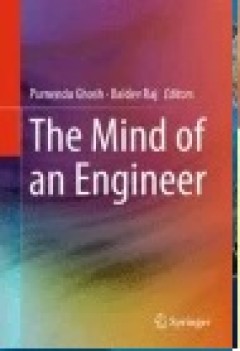
The Mind of an Engineer
The Indian National Academy of Engineering (INAE) promotes the endeavour of the practitioners of engineering and technology and related sciences to solve the problems of national importance. The book is an initiative of the INAE and a reflection of the experiences of some of the Fellows of the INAE in the fields of science, technology and engineering. The book is about the reminiscences, eureka…
- Edition
- -
- ISBN/ISSN
- 978-981-10-0119-2
- Collation
- XXXII, 458
- Series Title
- -
- Call Number
- -
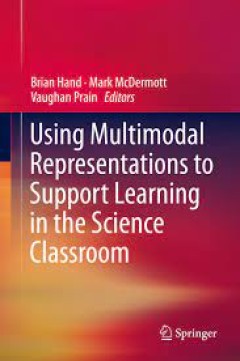
Using Multimodal Representations to Support Learning in the Science Classroom
This book provides an international perspective of current work aimed at both clarifying the theoretical foundations for the use of multimodal representations as a part of effective science education pedagogy and the pragmatic application of research findings to actual classroom settings. Intended for a wide ranging audience from science education faculty members and researchers to classroom te…
- Edition
- -
- ISBN/ISSN
- 978-3-319-16450-2
- Collation
- VI, 250
- Series Title
- -
- Call Number
- -
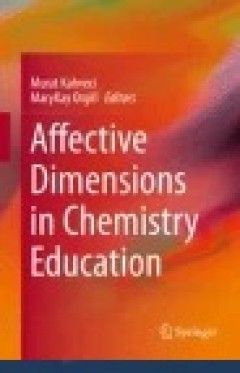
Affective Dimensions in Chemistry Education
This is a unique resource for those wishing to address the affective domain as they research and solve problems in chemistry education. Contributions by world-leading experts cover both fundamental considerations and practical case studies. This work fills a gap in the literature of chemistry education, which so far has focussed mainly on the cognitive domain. The affective domain refers to fee…
- Edition
- Ed. 1
- ISBN/ISSN
- 978-3-662-45085-7
- Collation
- XII, 318
- Series Title
- -
- Call Number
- 540.1 AFF a

The Future in Learning Science: What’s in it for the Learner?
This volume considers the future of science learning - what is being learned and how it is being learned - in formal and informal contexts for science education. To do this, the book explores major contemporary shifts in the forms of science that could or should be learned in the next 20 years, what forms of learning of that science should occur, and how that learning happens, including from th…
- Edition
- -
- ISBN/ISSN
- 978-3-319-16543-1
- Collation
- XV, 299
- Series Title
- -
- Call Number
- -
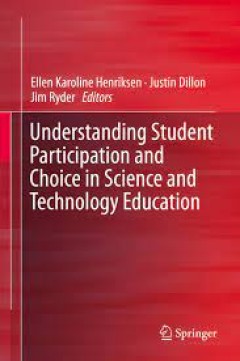
Understanding Student Participation and Choice in Science and Technology Educ…
Drawing on data generated by the EU’s Interests and Recruitment in Science (IRIS) project, this volume examines the issue of young people’s participation in science, technology, engineering and mathematics education. With an especial focus on female participation, the chapters offer analysis deploying varied theoretical frameworks, including sociology, social psychology and gender studies. …
- Edition
- -
- ISBN/ISSN
- 978-94-007-7793-4
- Collation
- 10 b/w illustrations, 20 illustrations in colour
- Series Title
- -
- Call Number
- -
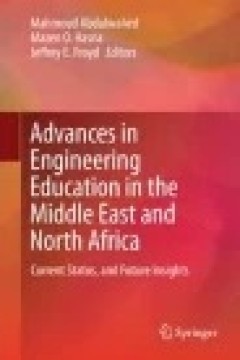
Advances in Engineering Education in the Middle East and North Africa: Curren…
This book provides a collection of the latest advances in engineering education in the Middle East and North Africa (MENA) region and sheds insights for future development. It is one of the first books to address the lack of comprehensive literature on undergraduate engineering curricula, and stimulates intellectual and critical discourse on the next wave of engineering innovation and education…
- Edition
- Ed. 1
- ISBN/ISSN
- 978-3-319-15323-0
- Collation
- XXVI, 454
- Series Title
- -
- Call Number
- 507 ADV a

Experiences in Liberal Arts and Science Education from America, Europe, and Asia
This book highlights the experiences of international leaders in liberal arts and science education from around the world as they discuss regional trends and models, with a specific focus on developments in and cooperation with China. Focusing on why this model responds to the twenty-first century requirements for excellence and relevance in undergraduate education, contributors examine if it c…
- Edition
- -
- ISBN/ISSN
- 978-1-349-94892-5
- Collation
- X, 145
- Series Title
- -
- Call Number
- -
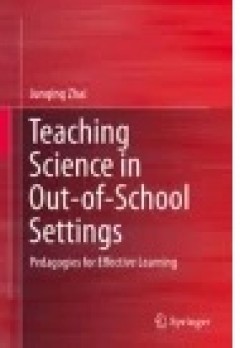
Teaching Science In Out-of-school Settings
This book explores pedagogical approaches used by informal science educators and botanic garden educators in particular, when teaching science to visiting students (7-12 years old). More specifically, it draws on the sociocultural perspective of learning, and highlights the importance of discourse in learning processes. It examines the interactions between four botanic garden educators (BGEs) a…
- Edition
- -
- ISBN/ISSN
- 978-981-287-591-4
- Collation
- XIII, 176
- Series Title
- -
- Call Number
- -
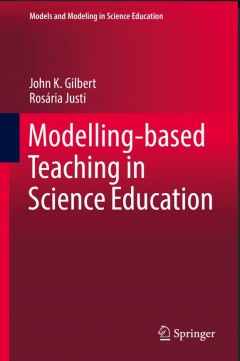
Modelling-based Teaching in Science Education
This book argues that modelling should be a component of all school curricula that aspire to provide ‘authentic science education for all’. The literature on modelling is reviewed and a ‘model of modelling’ is proposed. The conditions for the successful implementation of the ‘model of modelling’ in classrooms are explored and illustrated from practical experience. The roles of argum…
- Edition
- 1
- ISBN/ISSN
- 978-3-319-29038-6
- Collation
- XVIII, 264
- Series Title
- Models and Modeling in Science Education
- Call Number
- -
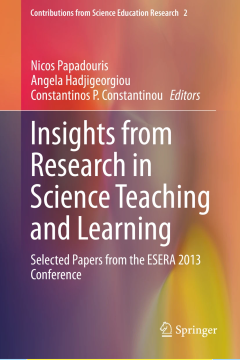
Insights from Research in Science Teaching and Learning
This book includes studies that represent the state of the art in science education research and convey a sense of the variation in educational traditions around the world. The papers are organized into six main sections: science teaching processes, conceptual understanding, reasoning strategies, early years science education, and affective and social aspects of science teaching and learning. T…
- Edition
- -
- ISBN/ISSN
- 978-3-319-20073-6
- Collation
- IX, 313
- Series Title
- -
- Call Number
- 360
 Computer Science, Information & General Works
Computer Science, Information & General Works  Philosophy & Psychology
Philosophy & Psychology  Religion
Religion  Social Sciences
Social Sciences  Language
Language  Pure Science
Pure Science  Applied Sciences
Applied Sciences  Art & Recreation
Art & Recreation  Literature
Literature  History & Geography
History & Geography